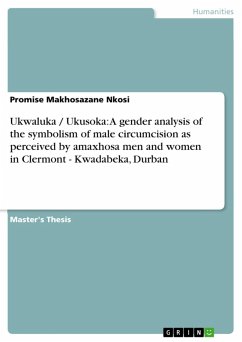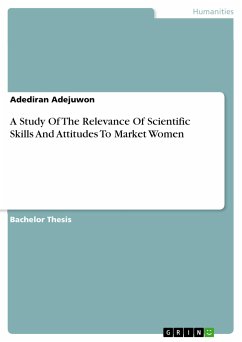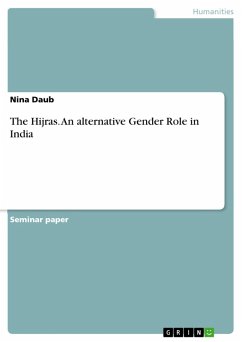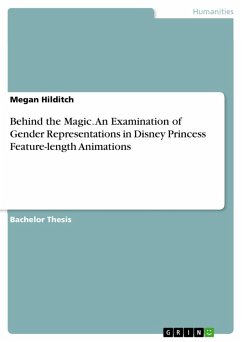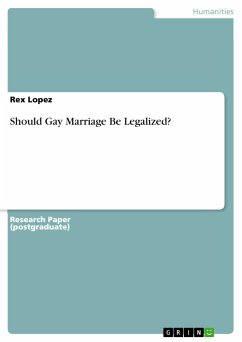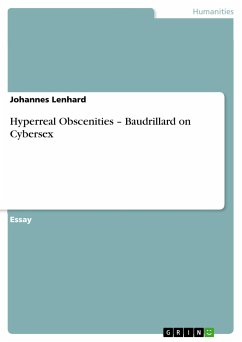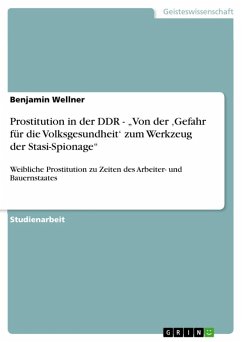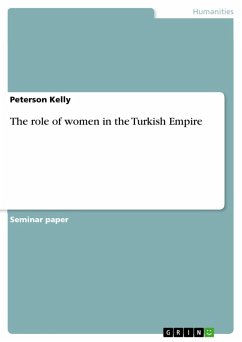
The role of women in the Turkish Empire (eBook, ePUB)
Versandkostenfrei!
Sofort per Download lieferbar
13,99 €
inkl. MwSt.
Weitere Ausgaben:

PAYBACK Punkte
0 °P sammeln!
Seminar paper from the year 2012 in the subject Sociology - Relationships and Family, grade: A, University of Cambridge, language: English, abstract: In most communities, women are viewed as the threads that knight the society together. They are the source of life and are treated with respect and highly valued. However, this was not the case in ancient empires. The rights for women have been a constant struggle that has come to be standardized in the twenty first century. Despite this, some societies especially in the less developed countries continue to deny women their basic human rights. To...
Seminar paper from the year 2012 in the subject Sociology - Relationships and Family, grade: A, University of Cambridge, language: English, abstract: In most communities, women are viewed as the threads that knight the society together. They are the source of life and are treated with respect and highly valued. However, this was not the case in ancient empires. The rights for women have been a constant struggle that has come to be standardized in the twenty first century. Despite this, some societies especially in the less developed countries continue to deny women their basic human rights. To understand how women strive and contribute to the development of the society, this paper is dedicated to examining the role that women played in the ancient Turkish empire to date. It is worth noting the social, political, economic and religious inclination of a society to help in understanding the role that women play in such a community. As of 1500 to 1800, the Turkish Empire was among the three major Islamic empires that dominated the southern Europe to the far north of India. It was known as the Ottoman Empire. It was made of the Balkans, the Middle East, North Africa and part of Eastern Europe . The ideas of the empire were closely tied with the Islamic culture and religious practices. As a result, there was a variety of challenges that women who lived in this empire experienced. At this point in time, there was a worldwide unrest as leaders tried to expand their empires. Issues of slavery were a common phenomenon as slaves were traded to enhance power of an empire and promoted development within the empire. To increase its power, the Ottoman Empire used Islamic laws to bring stability and contribute to the judicial system that governed the society and guaranteed stability. However, despite its efforts in achieving stability, this laws were biased and sidelined the needs of women and overlooked them as lesser beings. To curb the situation and ensure that they liberated themselves, women took different roles to spearhead a mutually fulfilling society that addressed their plight. On different occasions, the steppe culture that was dominant in this empire influenced the rule of the Muslim law bending some of the needs of the leaders to fit the needs of the states. The strength of a state, nation or empire is dependent on the structure of the family. If the family structure within a region is cohesive, then the state will enjoy peace and harmony and this will eventually contribute to development of the region. During the ottoman period, the family was patriarchal. This means that the structure of the family was m
Dieser Download kann aus rechtlichen Gründen nur mit Rechnungsadresse in A, B, BG, CY, CZ, D, DK, EW, E, FIN, F, GR, HR, H, IRL, I, LT, L, LR, M, NL, PL, P, R, S, SLO, SK ausgeliefert werden.




